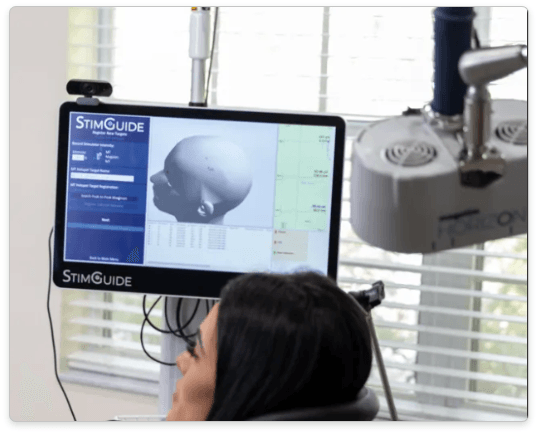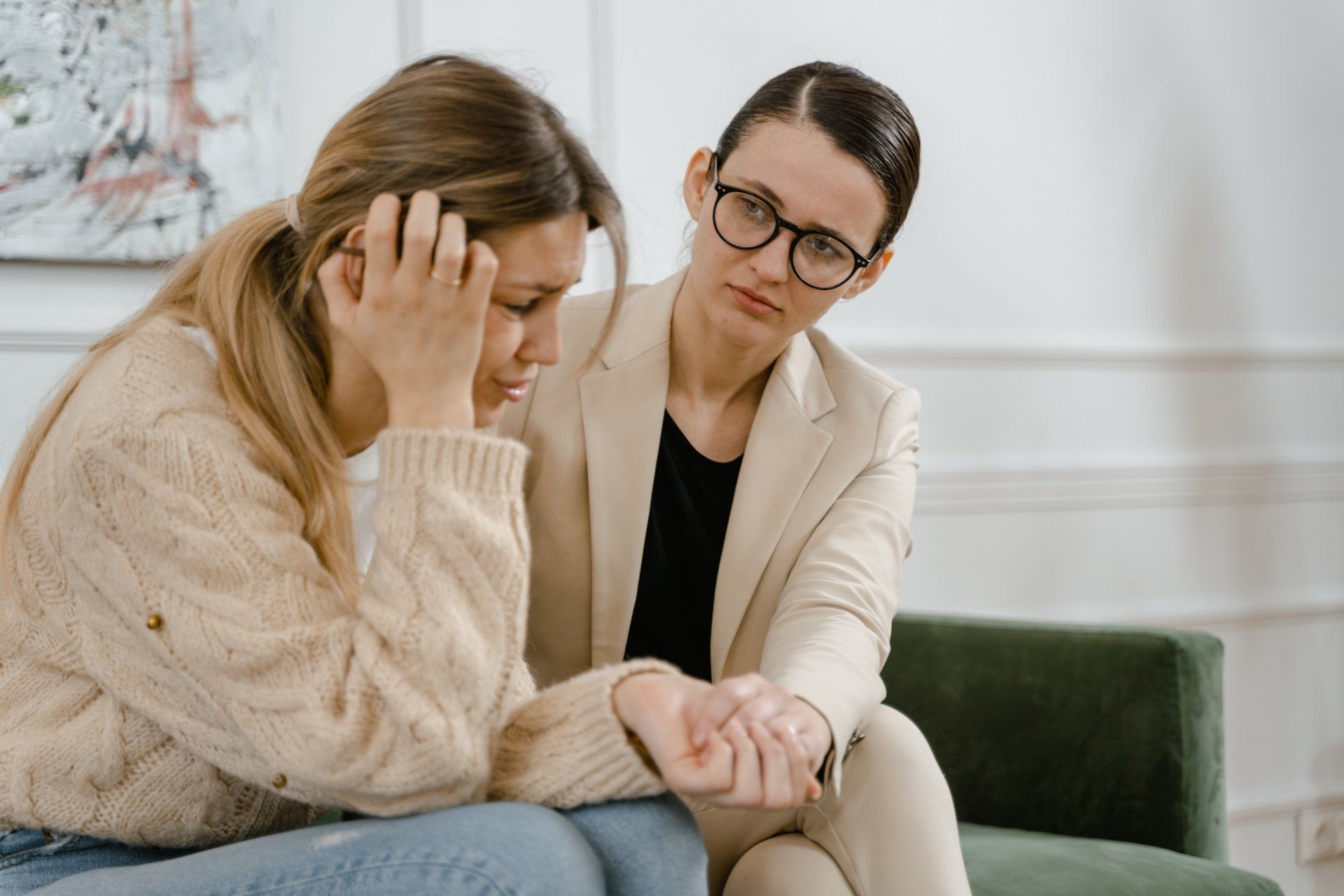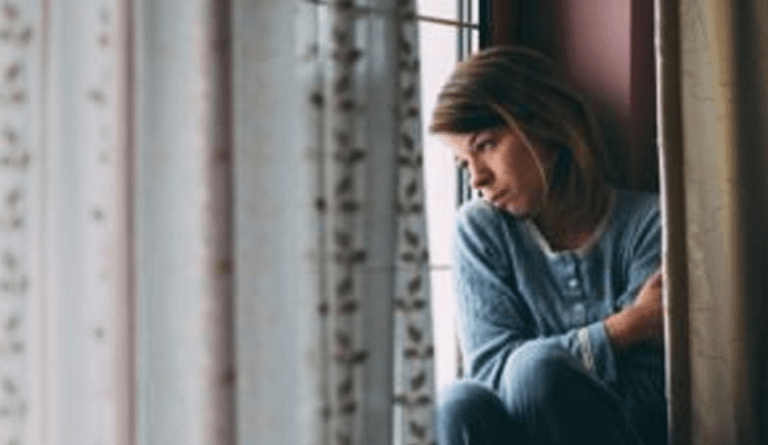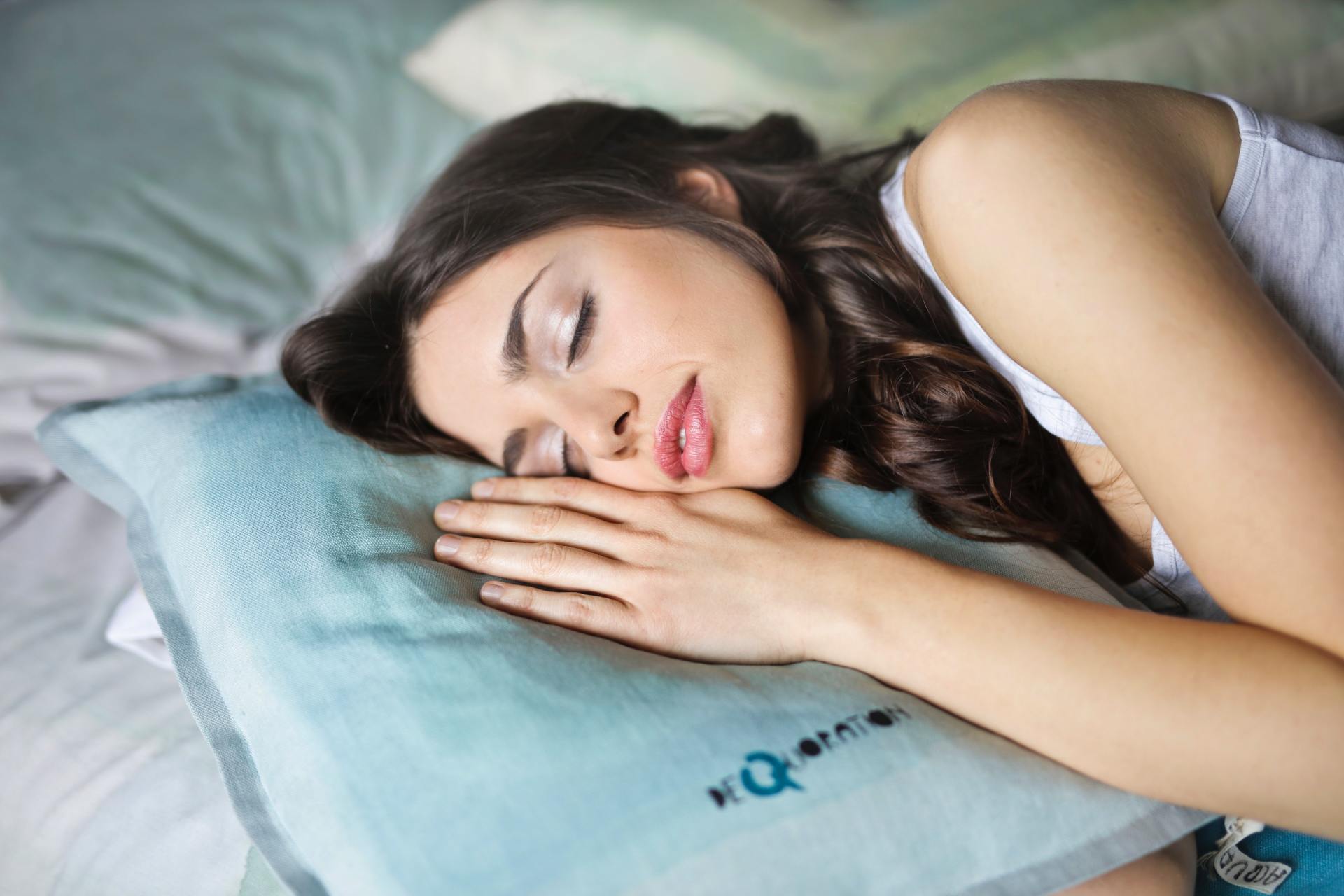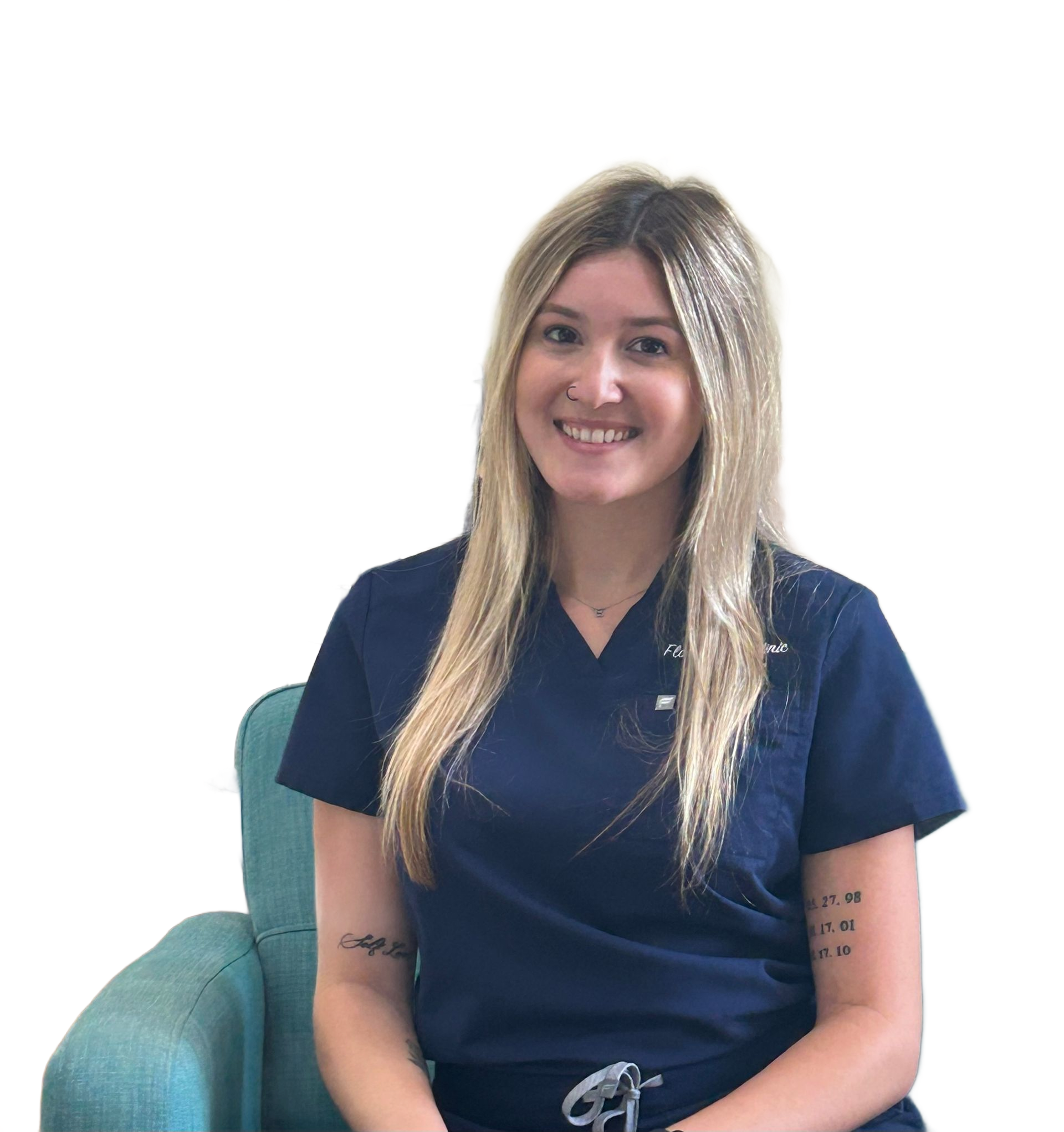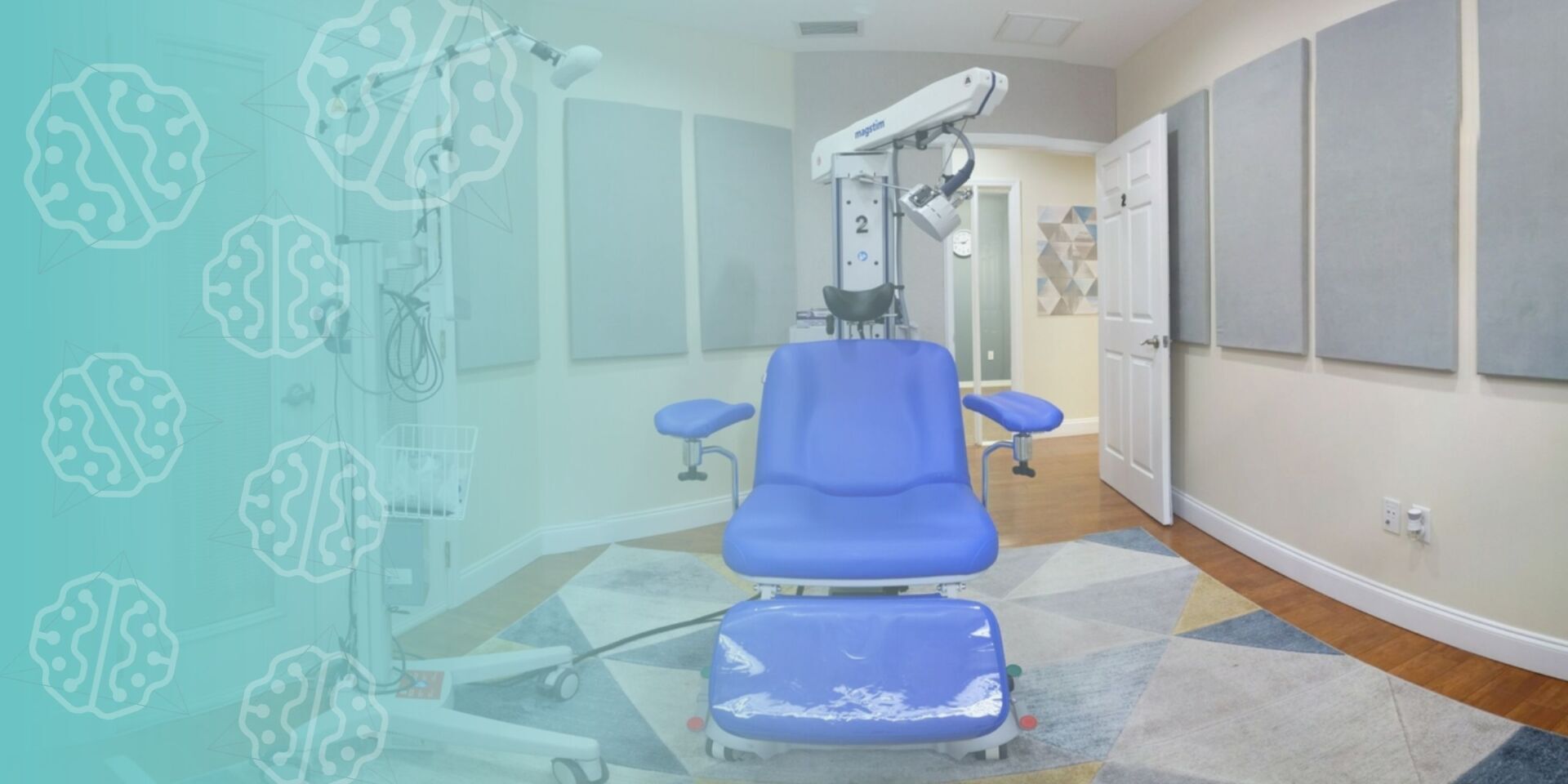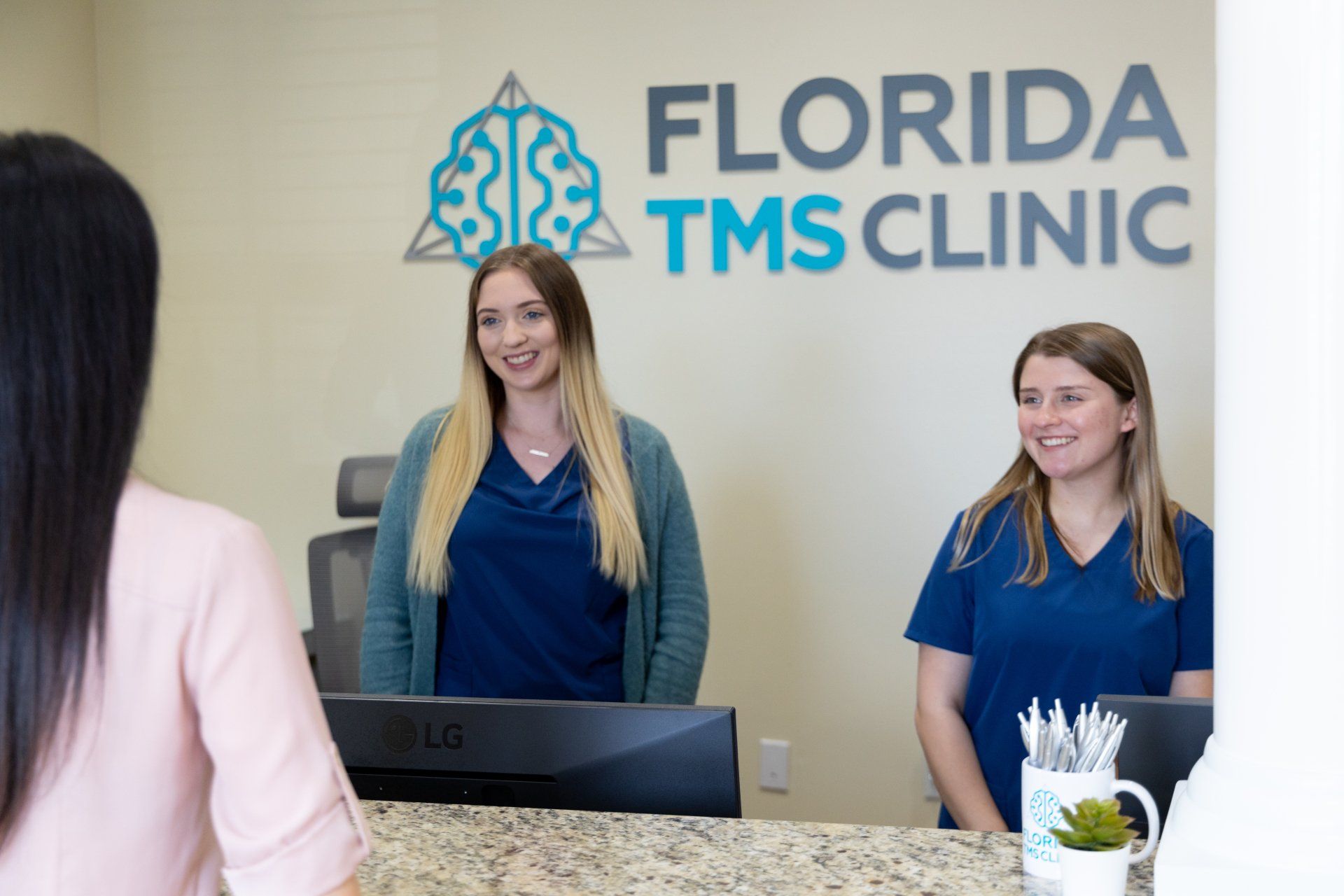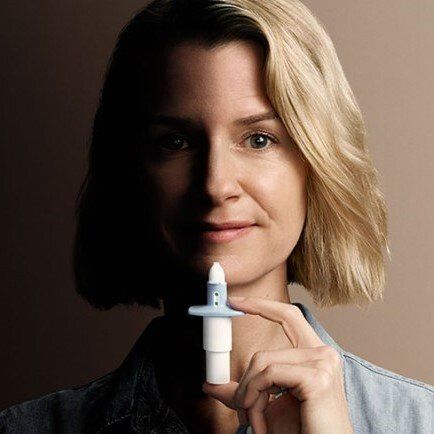Alternative Treatments For Depression
~ 3 Minute Read
By Mhd Khaled Bowarshi, M.D.
TMS Psychiatrist at Florida TMS Clinic
Depression is a widely prevalent chronic illness, with over 15 million Americans suffering from depression. Traditional treatment for depression includes psychotherapy like cognitive behavioral therapy and antidepressants like SSRIs. Many patients experience side effects to medications and look for an alternative treatment for depression that is medication-free and has no side effects.
What are the alternative treatments for depression?
Some of the alternative treatments for depression include:
- Meditation
- Yoga
- Acupuncture
- Guided imagery
- Chiropractic treatments
- Hypnosis
- Biofeedback
- Aromatherapy
What are the alternative herbal treatments for depression?
Some of the alternative herbal treatments for depression include:
- Curcumin
- Saffron
- St. John’s Wort
- SAM-e
- Ginkgo biloba
TMS Therapy As An Alternative Treatment For Depression
Though the above could be helpful for patients suffering from mild to moderate depression. It lacks providing a real drug-free alternative for severe depression treatment.
You see, about one-third of patients with clinical depression have what is called Treatment-Resistant Depression. This is more of a stubborn depression that doesn’t respond to classical psychotherapy and antidepressants. Herbals (chemicals after all) can sometimes help with mild cases of depression. Yoga, massage, exercise are helpful for mild to moderate depression. A severely depressed patient will probably have severe anhedonia (lack of interest) that lowers their motivation to take such an approach.
So what is the real alternative for depression treatment? The answer is
Transcranial Magnetic Stimulation [TMS]. TMS was invented in 1985, approved in the USA in 2008, and is widely implemented in clinical practice since 2019. TMS is a real drug-free, effective, approved alternative treatment for severe depression.
TMS works by magnetically stimulating an area of the brain that connects to circuits responsible for depression. It is mostly painless therapy done in an outpatient doctor’s office setting. Most patients spend a very comfortable and relaxing time while the treatment takes place. It takes about 19 minutes per treatment. Typically each patient will need 30-36 treatments session over 6 to 9 weeks. Here is the good news, it is beneficial. It has none of the side effects associated with medications (or supplements, for that matter).
Learn more about How TMS Works
TMS Therapy Alternatives
To be completely informed, you need to know about all the alternatives out there for TMS therapy. In this section, I am not going to talk about classical antidepressants and talk therapy as these are for depression that is not resistant. We will only discuss the treatment options available for TRD or Treatment Resistant Depression.
Click Here Learn more about Success rate of TMS
What are the alternatives to TMS therapy?
There are three treatment options that are FDA-approved for treatment resistant depression:
- ECT, which is electroconvulsive therapy. AKA Shock Therapy.
- TMS, which is Transcranial Magnetic Stimulation
- S-Ketamine or Spravato.
- VNS, which is Vagus nerve stimulation.
Is Transcranial Magnetic Stimulation Shock Therapy?
The answer is absolutely not. There is a big confusion out there thinking that TMS is the same as shock therapy. TMS is NOT shock-therapy. There is no shock at all in TMS. Shock therapy is ECT or Electroconvulsive Therapy. In ECT, an electrical shock is delivered to the brain to induce a therapeutic brain seizure. This is done in hospital settings and under sedation. This is not how TMS works. TMS basically uses what we know with Faraday's law of induction. We know that a magnetic field can induce a micro-electrical current. With a focused magnetic field, we can activate the brain cells by inducing these micro-electrical currents. So basically TMS gives us most of the end results we want from ECT without the side effects that come from ECT.
Click here to learn more about TMS vs ECT
How does TMS compare to ECT?
For starters, TMS is not shock-therapy. So TMS doesn’t involve inducing a therapeutic seizure. Therefore TMS doesn’t require that we put the patient to sleep. So no sedation or anesthesia of any kind. TMS is done in an outpatient doctor’s office setting. No need for a hospital visit like ECT. Patients can drive into the clinic for TMS therapy and drive themselves back. While with ECT and because of the sedation, patients will need someone to drive them back. Memory loss is a common side effect with ECT. TMS doesn’t cause any memory loss or any cognitive decline. On the contrary, there is evidence that TMS can improve memory and cognition. There is a growing interest in the preventive and therapeutic use of TMS for early dementia.
Click here to learn about the conditions treated with TMS
Which one is better: ECT or TMS?
It depends on what we are treating. For depression without psychosis, both TMS and ECT are effective. But for depression with psychotic features then ECT is better.
What are the main side effects of ECT?
Memory loss, cognitive decline, side effects related to anesthesia, and seizure.
Pro's & Con's of TMS? Click here to learn more
What is Ketamine or S-ketamine?
Ketamine is a dissociative anesthetic that is used in anesthesia for humans (rarely nowadays and animals (veterinary medicine). It was a popular party drug in the 70s and 80s. It causes dissociation like feeling “K-Hole”. It primarily blocks NMDA receptors. IV ketamine had been used to treat TRD. Recently Esketamine (Spravato) received FDA approval for treatment-resistant depression TRD.
How is Esketamine given?
Spravato or Esketamine is an intranasal spray administered under medical supervision. Patients need to be monitored in the medical office for 2 hours after the administration of Esketamine. It is given twice a week for 4 weeks then weekly thereafter.
What are the side effects of Ketamine and Esketamine?
Dissociation, nausea, and vomiting. Rare but high-risk side effects are cardiovascular, like hypertension and tachycardia.
Which one is better: TMS or Esketamine?
There is no head to head trials comparing TMS to Esketamine. But my answer will almost always be TMS first. Basically, because it is more effective and much safer. Also, TMS is more convenient as patients spend about 20 minutes per session while Spravato requires 2 hours hold in the medical office after the dose is given.
References:
González-Valero G, Zurita-Ortega F, Ubago-Jiménez JL, Puertas-Molero P. Use of Meditation and Cognitive Behavioral Therapies for the Treatment of Stress, Depression and Anxiety in Students. A Systematic Review and Meta-Analysis. Int J Environ Res Public Health. 2019 Nov 10;16(22):4394. doi: 10.3390/ijerph16224394. PMID: 31717682; PMCID: PMC6888319.
Cramer H, Lauche R, Langhorst J, Dobos G. Yoga for depression: a systematic review and meta-analysis. Depress Anxiety. 2013 Nov;30(11):1068-83. doi: 10.1002/da.22166. Epub 2013 Aug 6. PMID: 23922209.
Smith CA, Armour M, Lee MS, Wang LQ, Hay PJ. Acupuncture for depression. Cochrane Database Syst Rev. 2018 Mar 4;3(3):CD004046. doi: 10.1002/14651858.CD004046.pub4. PMID: 29502347; PMCID: PMC6494180.
Holmes EA, Blackwell SE, Burnett Heyes S, Renner F, Raes F. Mental Imagery in Depression: Phenomenology, Potential Mechanisms, and Treatment Implications. Annu Rev Clin Psychol. 2016;12:249-80. doi: 10.1146/annurev-clinpsy-021815-092925. Epub 2016 Jan 15. PMID: 26772205.
Banerjee S, Argáez C. Neurofeedback and Biofeedback for Mood and Anxiety Disorders: A Review of Clinical Effectiveness and Guidelines [Internet]. Ottawa (ON): Canadian Agency for Drugs and Technologies in Health; 2017 Nov 13. PMID: 30299634.
Sánchez-Vidaña DI, Ngai SP, He W, Chow JK, Lau BW, Tsang HW. The Effectiveness of Aromatherapy for Depressive Symptoms: A Systematic Review. Evid Based Complement Alternat Med. 2017;2017:5869315. doi: 10.1155/2017/5869315. Epub 2017 Jan 4. PMID: 28133489; PMCID: PMC5241490.
Kocaadam B, Şanlier N. Curcumin, an active component of turmeric (Curcuma longa), and its effects on health. Crit Rev Food Sci Nutr. 2017 Sep 2;57(13):2889-2895. doi: 10.1080/10408398.2015.1077195. PMID: 26528921.
Haller H, Anheyer D, Cramer H, Dobos G. Complementary therapies for clinical depression: an overview of systematic reviews. BMJ Open. 2019 Aug 5;9(8):e028527. doi: 10.1136/bmjopen-2018-028527. PMID: 31383703; PMCID: PMC6686993.
Shafiee M, Arekhi S, Omranzadeh A, Sahebkar A. Saffron in the treatment of depression, anxiety and other mental disorders: Current evidence and potential mechanisms of action. J Affect Disord. 2018 Feb;227:330-337. doi: 10.1016/j.jad.2017.11.020. Epub 2017 Nov 7. PMID: 29136602.
Ng QX, Venkatanarayanan N, Ho CY. Clinical use of Hypericum perforatum (St John's wort) in depression: A meta-analysis. J Affect Disord. 2017 Mar 1;210:211-221. doi: 10.1016/j.jad.2016.12.048. Epub 2017 Jan 3. PMID: 28064110.
Wilson A. S-Adenosyl Methionine (SAMe) for Depression in Adults. Issues Ment Health Nurs. 2019 Aug;40(8):725-726. doi: 10.1080/01612840.2017.1392161. Epub 2019 Jan 11. PMID: 30633610.
Chen P , Hei M , Kong L , Liu Y , Yang Y , Mu H , Zhang X , Zhao S , Duan J . One water-soluble polysaccharide from Ginkgo biloba leaves with antidepressant activities via modulation of the gut microbiome. Food Funct. 2019 Dec 11;10(12):8161-8171. doi: 10.1039/c9fo01178a. PMID: 31742291.
Perera T, George MS, Grammer G, Janicak PG, Pascual-Leone A, Wirecki TS. The Clinical TMS Society Consensus Review and Treatment Recommendations for TMS Therapy for Major Depressive Disorder. Brain Stimul. 2016 May-Jun;9(3):336-346. doi: 10.1016/j.brs.2016.03.010. Epub 2016 Mar 16. PMID: 27090022; PMCID: PMC5612370.
Hermida AP, Glass OM, Shafi H, McDonald WM. Electroconvulsive Therapy in Depression: Current Practice and Future Direction. Psychiatr Clin North Am. 2018 Sep;41(3):341-353. doi: 10.1016/j.psc.2018.04.001. Epub 2018 Jun 15. PMID: 30098649.
Taiminen T. Ketamine as treatment for depression. Duodecim. 2017;133(1):52-60. PMID: 29199810.
Bottomley JM, LeReun C, Diamantopoulos A, Mitchell S, Gaynes BN. Vagus nerve stimulation (VNS) therapy in patients with treatment resistant depression: A systematic review and meta-analysis. Compr Psychiatry. 2019 Dec 12;98:152156. doi: 10.1016/j.comppsych.2019.152156. Epub ahead of print. PMID: 31978785.
